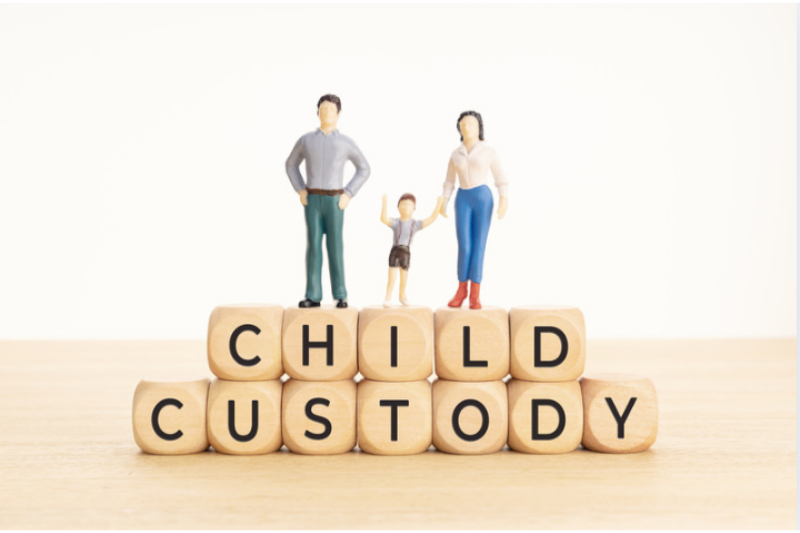Divorce marks the end of a marriage—but it doesn’t have to mark the beginning of long-term conflict, financial strain, or emotional exhaustion. While the process is never easy, it can be handled with grace, respect, and a shared goal of moving forward with dignity. That’s the heart of collaborative divorce—and for many families, it’s the smartest, most compassionate path through one of life’s hardest transitions.
In traditional divorce litigation, spouses often find themselves fighting over every detail, with lawyers exchanging demands, court dates dragging on, and children caught in the middle. This approach can be financially draining, emotionally charged, and focused more on winning than resolving.
But there’s a better way.
Collaborative divorce is designed to reduce conflict and promote healthy communication. Instead of battling in a courtroom, both spouses commit to working together—alongside trained legal professionals and, if needed, neutral experts—to find solutions that serve the entire family’s long-term wellbeing. This process is especially valuable for couples with children, where maintaining a functional co-parenting relationship is essential.
What Is Collaborative Divorce?
Collaborative divorce is a non-adversarial legal process designed to help couples resolve their divorce outside of the courtroom. Unlike traditional litigation—where opposing attorneys prepare for battle and a judge ultimately decides the outcome—collaborative divorce empowers both spouses to work together to reach a mutually beneficial agreement.
At its core, collaborative divorce is about respect, transparency, and problem-solving. Each spouse is represented by their own collaboratively trained attorney, and all parties agree—upfront—not to take the case to court. Instead, they commit to resolving every aspect of the divorce through private negotiations and open communication.
How the Collaborative Divorce Process Works
- Voluntary Agreement to Stay Out of Court
Both spouses and their attorneys sign a participation agreement committing to resolve all issues without litigation. If either party later decides to go to court, the collaborative attorneys must withdraw, encouraging everyone to stay engaged in the process. - Team-Based Support
In addition to attorneys, the collaborative team may include:- Financial neutrals to help with budgeting, asset division, and tax planning
- Child specialists or therapists to support parenting plans and reduce stress for children
- Divorce coaches to guide communication and emotional decision-making
This holistic approach ensures that emotional and financial issues are addressed alongside legal concerns.
- Open Disclosure of Financials
Both parties are required to fully disclose all assets, debts, income, and financial information. There’s no discovery process or surprise evidence—just honest, transparent sharing so that decisions are based on facts, not fear. - Respectful, Interest-Based Negotiation
Rather than arguing over positions (“I want the house!”), collaborative divorce encourages couples to discuss interests (“I want stability for the kids” or “I need financial security to start over”). This results in more durable, family-focused agreements.
Collaborative divorce isn’t just about avoiding a fight—it’s about protecting what matters most. For families in and around Matthews, NC, this approach offers a practical, private, and emotionally sustainable alternative to litigation, all while keeping control in your hands—not the courtroom’s.
Collaborative Divorce vs. Divorce Mediation
Divorce Mediation: A Neutral Third Party Leads the Process
In mediation, a neutral third party (the mediator) facilitates conversations between spouses to help them reach agreement on key issues like child custody, support, and property division. The mediator doesn’t take sides, and typically does not represent either party as an attorney. While some couples bring their attorneys to mediation or consult with them before and after, legal support is not always involved throughout the process.
Mediation can be an excellent option for couples who are largely aligned but need help ironing out the details. It’s often less expensive and faster than litigation, but it may lack the structure or legal oversight needed in more complex cases.
Collaborative Divorce: Legal Support Every Step of the Way
Collaborative divorce, on the other hand, ensures that each spouse has their own collaboratively trained attorney from the beginning. Everyone involved commits to resolving all matters out of court. Unlike mediation, where the mediator must remain neutral, collaborative divorce gives each party a legal advocate who is also focused on constructive problem-solving—not escalation.
Collaborative divorce also allows for a multidisciplinary team approach, including financial professionals, mental health specialists, and child experts when needed. This added support helps families address emotional and financial issues holistically—not just legally.
More Structure, More Support
While both mediation and collaborative divorce offer a respectful, solutions-focused process, collaborative divorce often provides more structure, more guidance, and a stronger foundation for future co-parenting and financial stability.
If you're unsure which path is right for you, speaking with a collaborative divorce lawyer in Matthews NC can help clarify your options and determine the best fit for your family’s needs.
Key Benefits of Collaborative Divorce
For families looking to reduce the emotional toll and financial burden of divorce, collaborative divorce offers a powerful and practical alternative to courtroom battles. This approach is especially beneficial when children are involved or when both spouses are committed to a peaceful transition.
Reduced Cost
One of the most immediate and tangible benefits of collaborative divorce is cost savings. Litigation often involves multiple court appearances, formal discovery, depositions, and extensive attorney preparation—all of which can drive legal fees sky-high. Collaborative divorce, on the other hand, is more focused and streamlined.
- Legal fees are often significantly lower due to fewer court filings and a more efficient process.
- Time spent in court is eliminated, reducing preparation time and hourly costs.
- Professionals such as financial neutrals and child specialists are shared between both parties, minimizing duplication and cost.
While collaborative divorce still requires professional support, it’s an investment in resolution rather than confrontation.
Faster Resolution
Divorce litigation often moves at the court’s pace—which can mean months or even years of waiting for hearings, trials, and rulings. Collaborative divorce avoids these bottlenecks entirely.
- Couples control the timeline, not the court calendar.
- Meetings are scheduled at your convenience, not a judge’s.
- With both spouses focused on solutions, agreements can often be reached in weeks or months—not years.
This efficiency not only saves money, but also allows families to begin the healing process and build a new future sooner.
Emotional and Psychological Relief
Perhaps the most underrated benefit of collaborative divorce is the emotional relief it brings. Traditional litigation is adversarial by nature—built on winning and losing. Collaborative divorce shifts the focus to problem-solving and respectful dialogue, which can significantly reduce stress and anxiety.
- By working together, couples minimize conflict and model healthy communication—especially important for children.
- The process promotes emotional closure and healing, rather than resentment and long-term hostility.
- Families emerge with a stronger co-parenting foundation, because the process values collaboration, not competition.
For many, collaborative divorce isn’t just a legal choice—it’s a healthier, more humane way to reshape family dynamics.
Protecting Children from Conflict
Children are often the silent casualties in contentious divorces. They may not sit in courtrooms or read legal briefs, but they feel the tension. One of the greatest gifts collaborative divorce offers is the ability to shield children from unnecessary stress and conflict.
- The process eliminates courtroom drama, preventing children from witnessing hostile exchanges or becoming the subject of public testimony.
- Parents in collaborative divorce are encouraged to develop child-focused parenting plans that prioritize emotional stability, routine, and continuity.
- By working together, divorcing spouses are more likely to remain effective parenting partners, supporting each other in their shared role long after the divorce is over.
The result is a healthier environment where children feel secure, supported, and loved—no matter how the family structure changes.
Privacy and Confidentiality
Courtroom divorces become part of the public record, meaning personal and financial matters may be accessible to anyone who looks. Collaborative divorce offers a much higher level of discretion.
- All discussions take place in private meetings, not open court.
- Financial disclosures, family issues, and parenting decisions remain confidential within the collaborative team.
- This privacy protects your reputation, your peace of mind, and your children's right to a quiet, respectful resolution.
For families who value dignity and discretion, collaborative divorce offers a safe and respectful space to work through sensitive issues without public exposure.
A Kinder, Smarter Path Through Divorce
Divorce doesn’t have to mean a courtroom showdown. It doesn’t have to create lasting wounds, financial devastation, or years of unnecessary conflict. With collaborative divorce, families have the opportunity to take a kinder, smarter path—one that prioritizes healing over hostility and solutions over standoffs.
This approach supports emotional well-being, financial stability, and long-term co-parenting success. It gives both spouses the ability to make informed, respectful decisions that reflect their values and their children’s needs. And perhaps most importantly, it creates space for dignity—so each person can move forward not just legally, but personally.
If you're considering divorce and want a process that minimizes damage and maximizes respect, collaborative divorce may be the right choice for your family.
Ready to explore a healthier way to divorce? Collaborative divorce might be the answer.
📞 Call The Goodman Law Firm today at (704) 502-6773 📧 Email: kg@goodmanlawnc.com
📍 Office: 10020 Monroe Road, Suite 170-288, Matthews, NC 28105
🕘 Hours: Monday – Friday, 9:00 AM – 5:00 PM
🌐 Visit us at: www.goodmanlawnc.com
We’re Here When You Need Us
Family law challenges can feel overwhelming, but you don’t have to face them alone. Let’s talk. Reach out today, and let’s take the next step together.

.png)











